Marseille 2012

6th World Water Forum, Marseille 2012
"The Time for Solutions"
During a whole week in Marseille, from 12 to 17 March 2012, the 6th World Water Forum brought together stakeholders from all over the world for the Time for Solutions. Participants representing over 173 countries attended this international triennial event, for which nearly 35,000 entries were recorded. Over 250 sessions on topics ranging from transboundary water management to green growth or food security were discussed. Some of the world’s most influential decision makers for water were present.
• Strong political involvement
During the Forum’s first days, 15 Heads of States or Governments and European Commissioners, 112 Ministers, Vice-Ministers and Secretaries of State came to strengthen the debate. The Forum’s political process gathered 176 national delegations and international organisations.
During 6 ministerial sessions governments worldwide gathered to identify needs and objectives and produced the Ministerial Declaration, the recommendations of which will serve to shape the international water agenda.
The Parliamentarian session aimed to strengthen parliamentarians’ capacities and to reinforce their decisive role in supporting water and sanitation legislation. The 250 attending parliamentarians were encouraged to share solutions for national implementation of legislative frameworks. A Parliamentarians’ Manifesto was released to demonstrate their commitment.
The 250 attending mayors took part in the drafting of the political message made from local and regional authorities. They were asked to improve their practices for water and sanitation management. By the end of the week, the Istanbul Water Consensus had reached a total of more than 1,000 signatories.
The political involvement had never been as important, specifically the contributions and commitments made from local governments and parliamentarians, to either improve their practices by signing the Istanbul Water Consensus or making the right to water a legal reality.
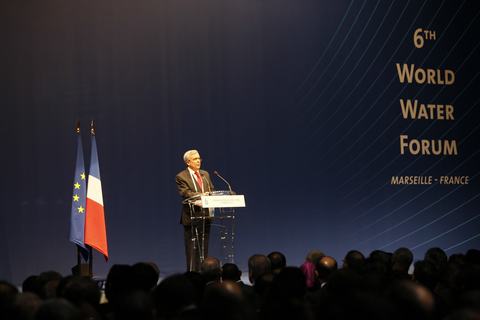

• A multi-stakeholder event
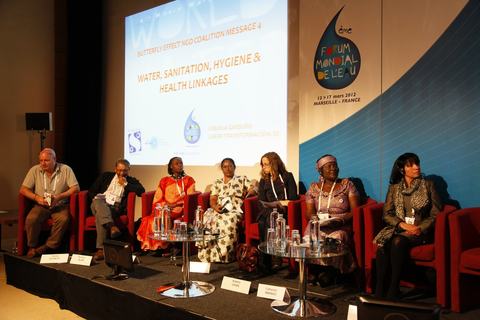
In addition to strong political involvement, 3,500 NGOs joined the movement and civil society representatives, women associations and youth organisations were all present at the table. Furthermore, 2,600 schoolchildren came to discover and understand the importance of preserving the world’s water resources.
• The Highlights of the 6th World Water Forum
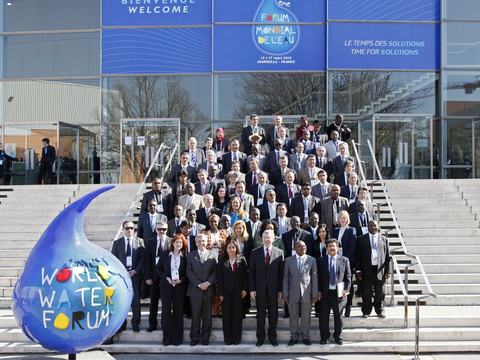
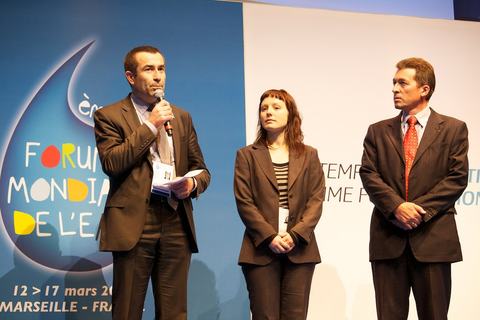
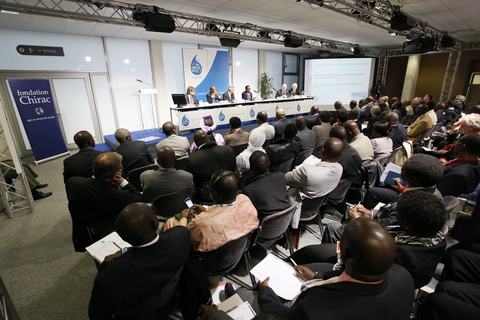
Through the high-level sessions, in-depth dialogues gathered around the same table heads of states, ministers and representatives from intergovernmental organisations, civil society, private sector, academia and local officials. These high level meetings focused on various topics, including global water governance, water and food security or the anticipated outputs of Rio+20 regarding water and sanitation.
The ministerial sessions consisted of 12 roundtables and one conference, which led to a consensual Ministerial Declaration providing many recommendations for furthering the international water agenda, including Rio+20.
The 6th Forum Thematic Process Framework was built according to 3 strategic directions - Well-being, Economic development, Keep the planet blue - in which were embedded 12 key priorities for action and 3 conditions for success. More than 250 sessions brought stakeholders together to find answers to the identified targets and major thematic issues were addressed through key sessions, such as Water and Energy, Green Growth or the Implementation of the Right to Water.
• Read more on the Forum's thematic framework
The Regional Processes identified priorities, targets and solutions on the African continent, in the Americas, the Asia-Pacific zone and Europe by engaging with multiple stakeholders. At the same time, the Mediterranean and the Arab countries cross-continental processes broadened the debate and built bridges between decision makers.
The Water Debates offered thought-provoking grounds to build bridges between polarised viewpoints. The delicate questions of private/public involvement in the provision of water and sanitation services and the role of water storage in view of climate change were addressed.
The Commitments Session assembled many Forum stakeholders during a large dynamic and interactive plenary to present their commitments. It gave voice to the full range of commitments made and highlighted both the themes and regions addressed throughout the Forum week.
• The 6th World Water Forum Framework
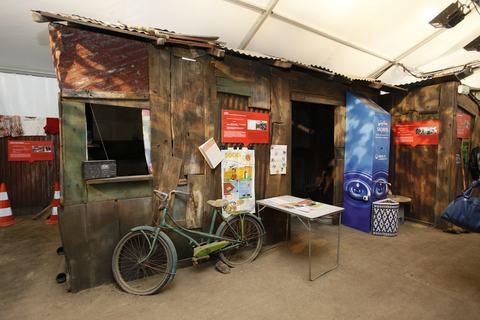
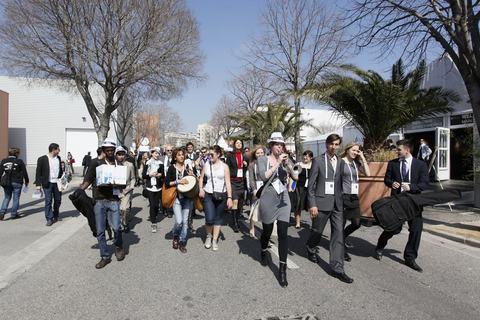
Based on its multi-stakeholder framework, the 6th World Water Forum’s objective was to identify targets, bring solutions and ask for commitments involving experts and decision-makers from different sectors and regions of the world.
To help achieve these objectives, the Platform of Solutions was created. Nearly 1,500 solutions have been collected. From low-cost technologies to global policy framework proposals, the platform gathers a wide range of tailored solutions for every target addressed during the Forum.
• Visit the Platform of Solutions
To showcase the solutions, a Village of Solutions was built in the heart of the Parc Chanot venue and covered 4,000m² of exhibition space which presented solutions collected from all around the world.
In addition, a new commission was created for the 6th World Water Forum: the Grassroots & Citizenship Commission, involving and mobilising civil society representatives and raising awareness among citizens to ensure a stronghold in local, national, regional and international realities. The commission focused on four main groups consisting of NGOs, women, youth and the cultural aspects related to water.
• Main publications
Post Forum Highlights - Marseille, 2012
The Highlights document presents in 30 clear-cut pages, an overall view of the 6th World Water Forum week: the Village of Solutions, major events, political, regional, thematic and grassroots sessions, the exhibition and side events. This essential and concise document offers a quick understanding of the week’s achievements and is a summary everyone can easily comprehend.
June 2012
• Download: English version / Version française
Global Water Framework - Marseille, 2012
This report brings together all major outcomes and outputs of the 6th World Water Forum. This includes the results and presentations of the four preparatory processes and Forum sessions, as well as the high level sessions and side-events. Each session is directly linked to the Forum Library.
August 2012
• Download: English version
